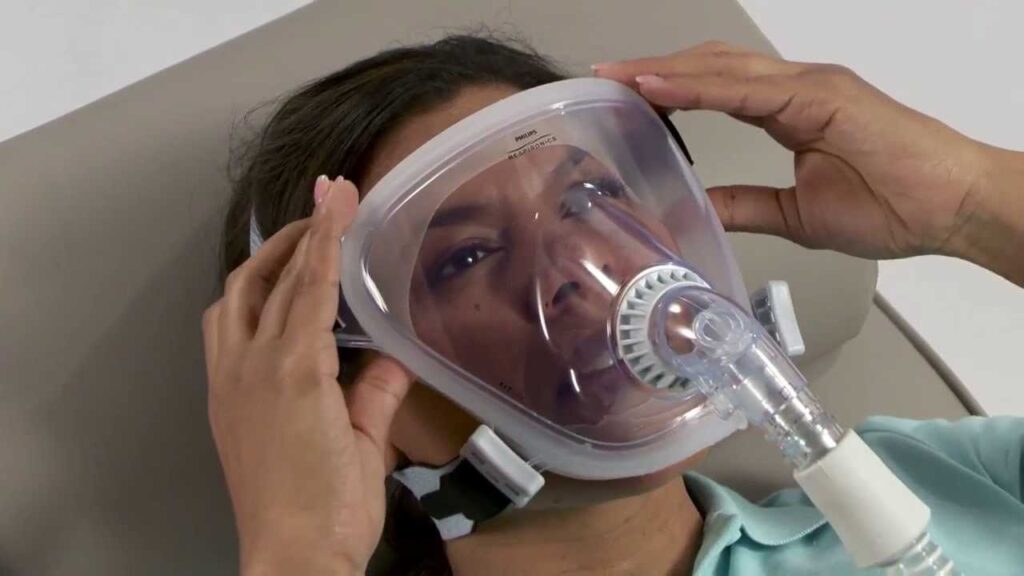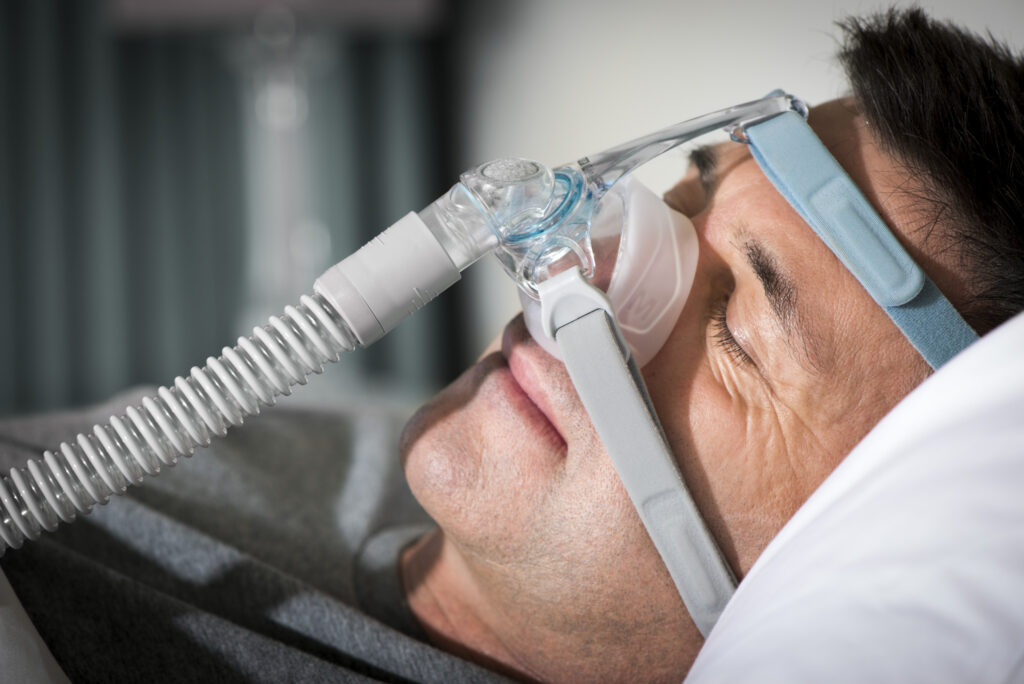Getting a good night’s sleep is essential for overall well-being, but for those suffering from sleep apnea, this can often be a challenge. Sleep apnea is a disorder that causes breathing interruptions during sleep, leading to restless nights and, over time, more serious health issues. One of the most effective ways to manage sleep apnea is through the use of a CPAP (Continuous Positive Airway Pressure) machine. This article explores how CPAP machines work, the benefits they offer, and the factors to consider when choosing the right one for your needs.
What is Sleep Apnea and How CPAP Machines Help
Sleep apnea is a condition where a person’s breathing repeatedly stops and starts during sleep. It affects millions of people globally, leading to fragmented sleep and a wide range of health issues. There are three primary types of sleep apnea:
See more: Getting a Sleep Apnea Test in Canberra: Where to Start
- Obstructive Sleep Apnea (OSA): The most common form, caused by a blockage in the airway, usually when the throat muscles relax too much during sleep.
- Central Sleep Apnea: Occurs when the brain fails to send proper signals to the muscles that control breathing.
- Complex Sleep Apnea: A combination of both obstructive and central sleep apnea.
CPAP machines are primarily used to treat Obstructive Sleep Apnea (OSA). These machines work by delivering a continuous stream of air through a mask, which keeps the airway open, preventing the pauses in breathing that define sleep apnea. By ensuring that the airway remains open throughout the night, CPAP machines help individuals achieve uninterrupted, restorative sleep.
Types of CPAP Machines
There are several types of CPAP machines, each catering to different needs. Below are the three main types:
- Standard CPAP (Continuous Positive Airway Pressure):
- Delivers a constant flow of air at a fixed pressure throughout the night.
- Benefits: Simple, effective, and the most common choice for people with obstructive sleep apnea.
- Limitations: Fixed pressure might not be ideal for individuals whose pressure needs fluctuate during sleep.
- Auto-CPAP (Auto Adjusting CPAP):
- Automatically adjusts the air pressure based on your breathing patterns throughout the night.
- Benefits: More comfortable as it adapts to changes in your breathing, ensuring the optimal pressure is used at all times.
- Limitations: Typically more expensive than standard CPAP machines.
- BiPAP (Bilevel Positive Airway Pressure):
- Provides two levels of pressure: a higher pressure for inhalation and a lower pressure for exhalation.
- Benefits: Ideal for individuals who need a more customized approach, especially those with complex sleep apnea or other respiratory conditions like COPD.
- Limitations: BiPAP machines are generally more expensive and complex to use than standard CPAPs.
How to Choose the Right CPAP Machine
Choosing the right CPAP machine depends on several factors tailored to your specific needs. Here are a few things to consider when selecting a machine:

- Comfort: Look for machines with features like adjustable pressure settings, ramp functions (gradually increasing pressure), and heated humidifiers to make the experience more comfortable.
- Noise Level: If you or your partner are light sleepers, consider a quieter model. Many newer CPAP machines are designed with low noise levels for better sleep.
- Portability: For those who travel often, a compact and lightweight CPAP machine is ideal. Some models are specifically designed for easy transport.
- Price: CPAP machines vary in price. Standard models are typically more affordable, while Auto-CPAP and BiPAP machines tend to cost more due to additional features.
Discussing your needs with your healthcare provider will help you select the most suitable machine for your situation.
CPAP Machine Setup and Usage
Once you’ve chosen your CPAP machine, setting it up correctly is vital to ensure optimal performance. Here’s how you can do it:
- Unbox and Assemble: Connect the tubing to both the CPAP machine and the mask. If your machine includes a humidifier, connect the water chamber.
- Adjust the Pressure: For a standard CPAP, the doctor will preset the pressure. With Auto-CPAP, the machine will automatically adjust as needed.
- Fit the Mask: Ensure the mask is comfortable and fits securely. There are various mask types, including nasal masks, nasal pillows, and full-face masks.
- Start the Machine: Turn on the machine and let it run for the night. Make sure to use it consistently for maximum benefit.
Troubleshooting Tips:
- Air Leaks: Ensure the mask is tightly secured and inspect the tubing for any damage.
- Dry Mouth: Consider using a heated humidifier or switch to a full-face mask to prevent dryness.
- Noise: If the machine is too noisy, check the filters for blockages and place the machine on a stable surface to reduce vibrations.
CPAP Machine Accessories and Maintenance
For your CPAP machine to work efficiently, regular maintenance is essential. Key accessories and maintenance tips include:
- Masks: Clean your mask daily using warm water and mild soap to avoid bacterial buildup. Replace your mask every 6 to 12 months.
- Tubing: Clean the tubing weekly to prevent mold growth. Replace it every 6 to 12 months.
- Filters: Change the air filter every month to ensure clean air delivery.
- Humidifiers: If your CPAP machine has a humidifier, make sure to clean the water reservoir regularly to avoid mold and bacteria buildup.
Benefits of Using a CPAP Machine
Using a CPAP machine offers numerous health benefits:
- Improved Sleep: CPAP therapy eliminates the interruptions caused by sleep apnea, leading to deeper, more restorative sleep.
- Better Heart Health: Consistent CPAP use can reduce the risk of heart disease, stroke, and high blood pressure, which are often exacerbated by untreated sleep apnea.
- Increased Energy: A good night’s sleep improves daytime energy levels, focus, and overall mood.
- Improved Relationships: CPAP machines reduce snoring and disturbances, helping couples sleep better and reducing the negative effects of poor sleep on relationships.
Common CPAP Machine Problems and How to Solve Them
While CPAP machines are generally reliable, users may encounter a few common issues:
- Air Leaks: Check the mask for damage or improper fitting and adjust the straps for a snug fit.
- Dry Mouth: Use a heated humidifier, or opt for a full-face mask to reduce dryness.
- Discomfort: Experiment with different mask types or use cushion pads for added comfort.
Cost of CPAP Machines and Insurance Coverage
CPAP machines come in various price ranges, influenced by the type and features:
- Standard CPAP Machines: Range from $200 to $800.
- Auto-CPAP Machines: Typically cost between $500 and $1,500.
- BiPAP Machines: Can cost upwards of $1,000.
Insurance Coverage: Many insurance plans cover CPAP machines if prescribed by a healthcare provider. Be sure to check with your insurance company to confirm the extent of coverage and what out-of-pocket costs you may face.
Conclusion
CPAP machines have revolutionized the treatment of sleep apnea, offering a non-invasive, highly effective solution for those struggling to sleep at night. With improved sleep quality, reduced health risks, and greater daytime energy, CPAP therapy can make a significant difference in your life. When choosing the right machine, consider comfort, portability, price, and noise level, and always consult with your healthcare provider to find the best solution for your needs. By following proper usage and maintenance guidelines, you can enjoy the many benefits that CPAP machines offer for a restful night’s sleep and better overall health.
5

